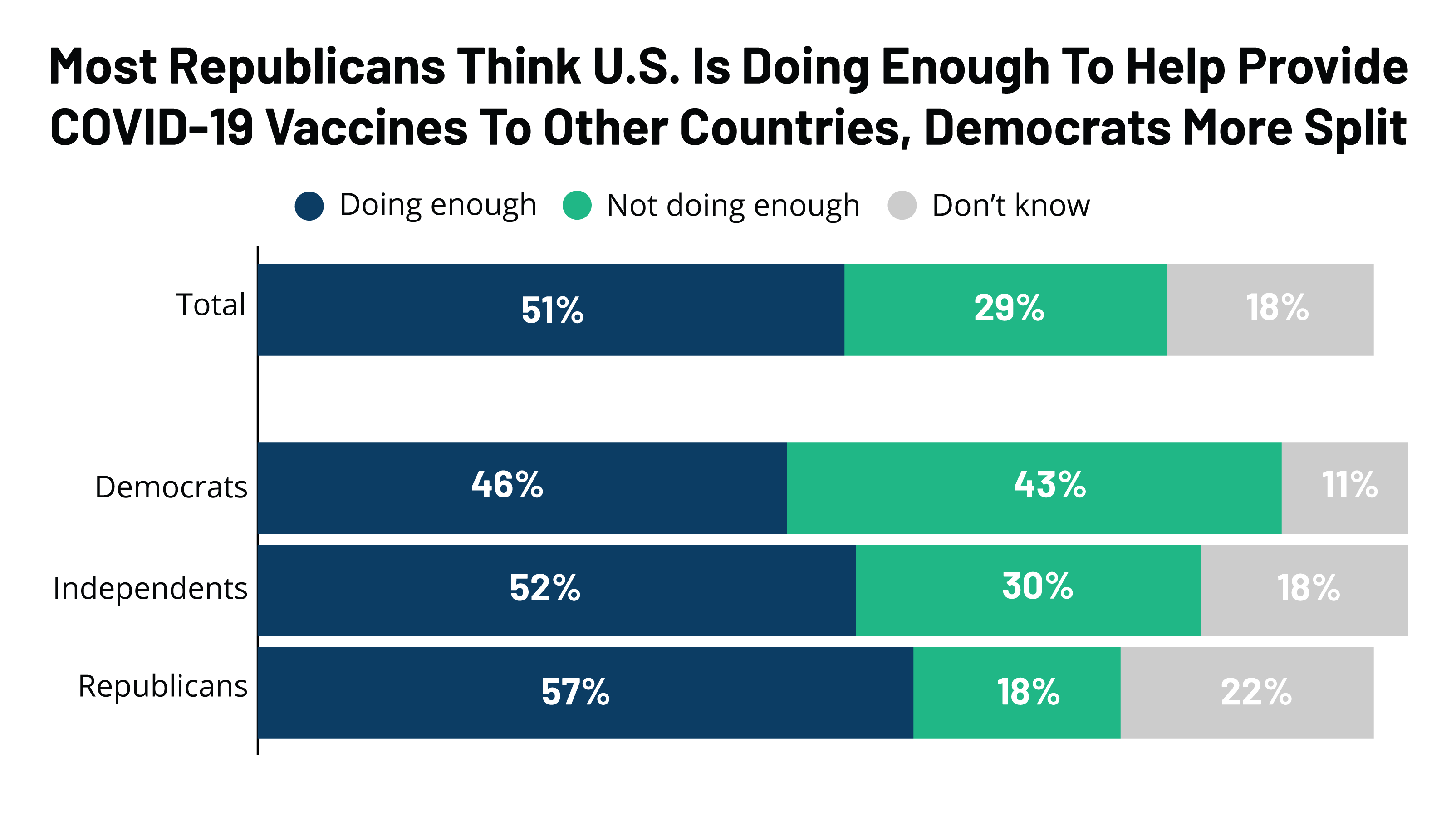Overview
The Biden administration has stated its intention to help combat the COVID-19 pandemic around the world and recently convened a global summit to set global targets and announce new commitments. The U.S. has pledged more COVID-19 vaccine doses and funding than any other country. In the latest KFF COVID-19 Vaccine Monitor, we find that the public is generally supportive of this work, though more likely to prefer the U.S. playing a major role versus a leading one, and there are partisan differences. When informed that the U.S. has enough of its own vaccine supply, public support for the U.S. taking a major role in global vaccine distribution rises.
Survey Findings
About half of the public (51%) say that the U.S. government is doing enough to help provide COVID-19 vaccines to other countries, while around three in ten adults (29%) don’t think the U.S. is doing enough and another one in five aren’t sure. Across partisans, a majority of Republicans say the U.S. is doing enough to help provide vaccines to other countries (57%) whereas Democrats are more divided (46% say the U.S. is doing enough vs. 43% who say it is not).
When it comes to how much of a role the U.S. should play, 62% of Americans say the U.S. should take a leading or major role in helping provide vaccines to other countries that need them, including 21% who think the U.S. should take a leading role in distribution (a slight decline from 27% in May).
Partisans are divided on the role the U.S. should take in efforts to distribute the vaccine globally with eight in ten Democrats (81%) saying the U.S. should take a leading or major role in assisting with global distribution compared to less than half of Republicans (43%) who say the same. In addition, about seven in ten vaccinated adults (73%), those with college degrees (70%), Black adults (68%), and Hispanic adults (67%) think the U.S. should take a leading or major role.
The share of adults saying the U.S. should take on a leading or major role in the distribution of COVID-19 vaccines globally increased after hearing that the U.S. has enough supply of the COVID-19 vaccines to help other countries without hurting its own supply (75%). Around seven in ten say the same after hearing that providing vaccines to other countries will help the U.S. achieve levels of immunity necessary to curb the pandemic (71%) or that helping other countries vaccinate their populations will reduce the risk of new COVID variants spreading to the U.S. (71%).
The share of adults saying the U.S. should play a major or leading role in international vaccine distribution rose across partisans when presented with each piece of information tested in the survey. After hearing each piece of information, roughly nine in ten Democrats, more than seven in ten independents, and at least half of Republicans said the U.S. should play a major or leading role.

